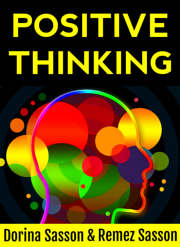
Fashion isn’t just about looking good. It’s how you tell the world who you are without having to utter a single sentence.
What clothes do for your mood, and even your success, is amazing. In fact, style choices can mirror personal growth, reflecting shifts in confidence and mindset.
From boardrooms to cafes, what you wear can transform self-esteem too. Here’s a look at how this vibrant intersection of style and self-expression plays out when it’s fully understood and embraced.
Fashion’s Role in Forming Identity
Improve Your Life with Our Online Courses! Click to Learn About Our Online Courses!
Fashion’s impact on identity is profound. It’s like a visual autobiography, revealing your personality without speaking.
Here’s how it plays out:
- Color choices say a lot. For instance, bright colors might reflect an outgoing nature, while muted tones suggest introspection.
- Fabric textures add layers. So with soft cashmere, you’ll exude comfort and luxury, while denim implies casual ease.
- Styles communicate interests. In the case of regularly donning vintage wear, you’re either nodding to nostalgia or indicating your awareness of the need to shop sustainably.
There are lots of influential figures in the fashion world who leverage their styles for identity-signaling purposes.
Take Timothee Chalamet’s edgy red carpet looks as an example, which capture youthful rebellion. Or Anna Wintour’s consistent bob and sunglasses, instantly projecting authoritative consistency wherever she’s seen.
Understanding how each choice conveys a message means you can refine your wardrobe to more authentically represent yourself in different contexts. And as your aspirations evolve, choosing to snap up new threads from on-trend outlets like Trendyol is the best way to ensure that what you wear is always tied to who you are.
The Psychological Impact of Personal Style
What you wear affects how you feel. This is grounded in psychology, and studies consistently show that clothing is influential over mental states as much as many other factors that define us as individuals.
Here’s why:
- Clothing affects your confidence. So, if you put on an outfit that makes you feel good, it boosts self-esteem and can be combined with other strategies to further this aim.
- Certain styles can alter behavior. For example, formal attire often leads to more professional conduct because you’re channeling authority.
- Fashion choices reflect mood shifts, too. Bright hues may indicate a happy mindset, while darker tones might mean you’re seeking comfort.
Consider how Steve Jobs’ signature black turtleneck became his mental armor, signaling focus and minimalism to himself and others. It also reduced choice fatigue, as the Apple founder always knew what he was going to be wearing each day, rather than being plagued by myriad decisions.
Even science backs this up. Studies show people in lab coats performed better on tasks requiring attention to detail because they subconsciously embodied the traits associated with doctors or scientists.
In short, personal style is an emotional anchor tied closely to your inner state and an outward expression of how you want to feel, even if you haven’t reached that point quite yet.
Societal Influence on Fashion Choices
Society shapes your wardrobe more than you might realize.
Trends, cultural norms, and social circles subtly guide what ends up in your closet.
Here’s how this influence manifests:
- Media trends dictate what’s in style. Celebrities sporting new looks set off ripples that often translate into widespread adoption.
- Peer groups affect personal fashion choices. You likely dress similarly to friends because shared interests encourage conformity.
- Cultural background informs traditional attire and the modern twist it may take within different communities.
Take the example of the Billie Eilish-perpetuated baggy clothes trend. It’s a reaction to societal pressures around body image, which many followers adopted for similar reasons. So, if you’ve assumed that this is just a throwback to 90s fashion, think again.
Ultimately, staying true to yourself while recognizing these influences is key so you don’t end up as just another mannequin of mainstream expectations.
The Bottom Line
There’s no secret to the fact that fashion is a major means of self-expression. What’s less commonly understood is how this plays a part in building your confidence and allowing you to work towards goals you’ve set.
When what you wear feels authentic to your inner self, self-esteem really can flourish. It’s a way of making the connection between style and psyche strong. This is a must-have if you want to become more successful in either your personal or professional life.
Despite societal influences, your fashion choices can still reflect personal authenticity. Keeping this balance empowers individuality while also allowing you to be agile as trends change and expectations move along with them.

